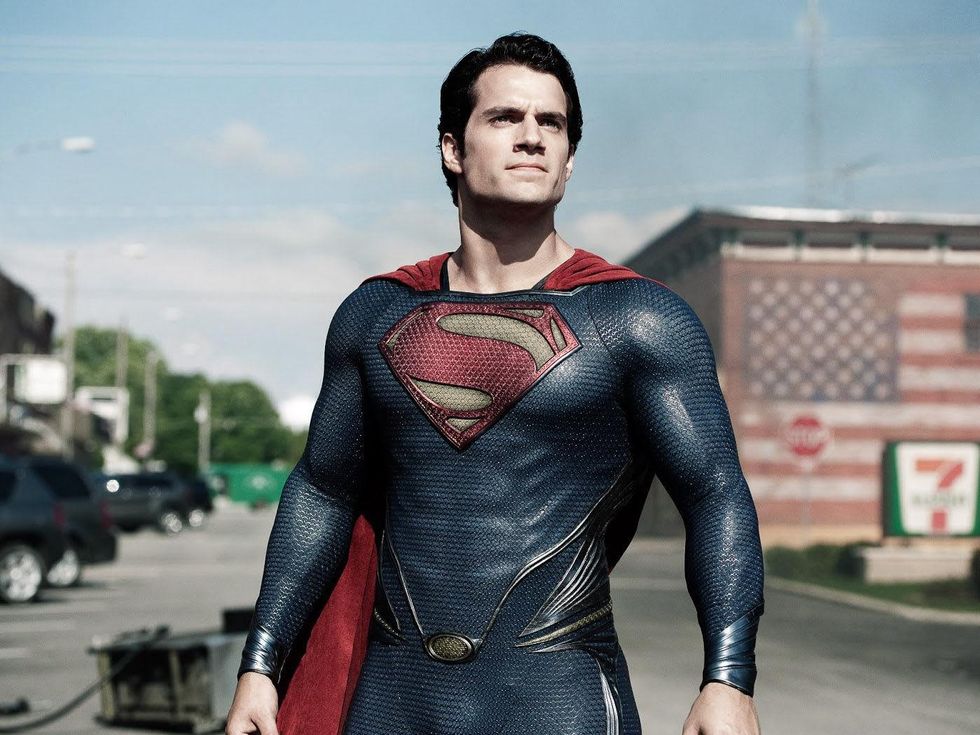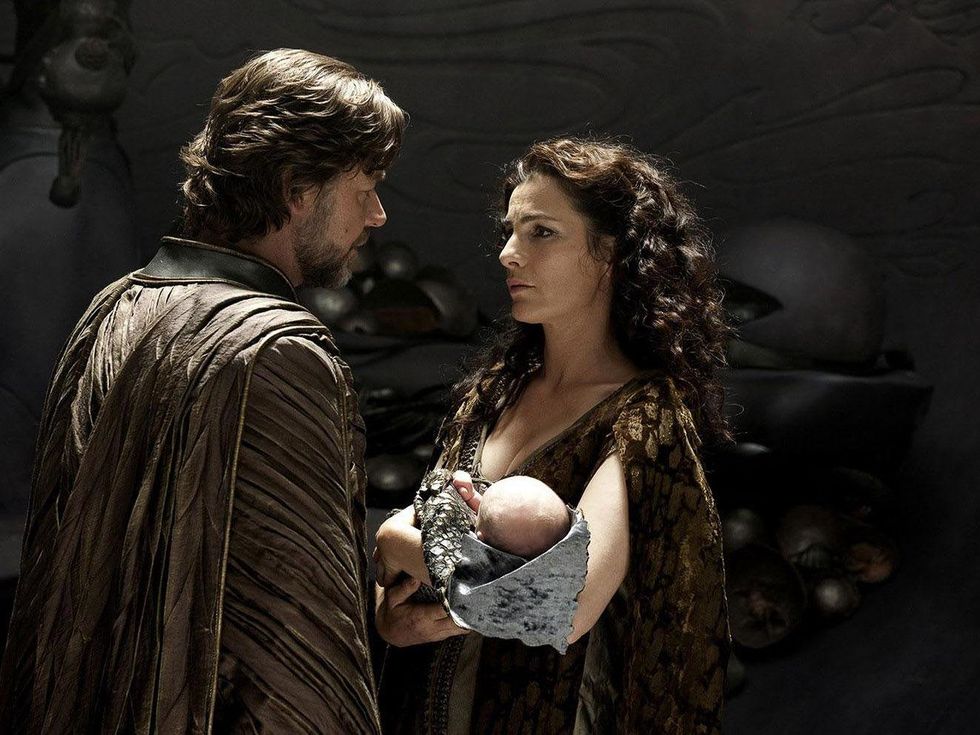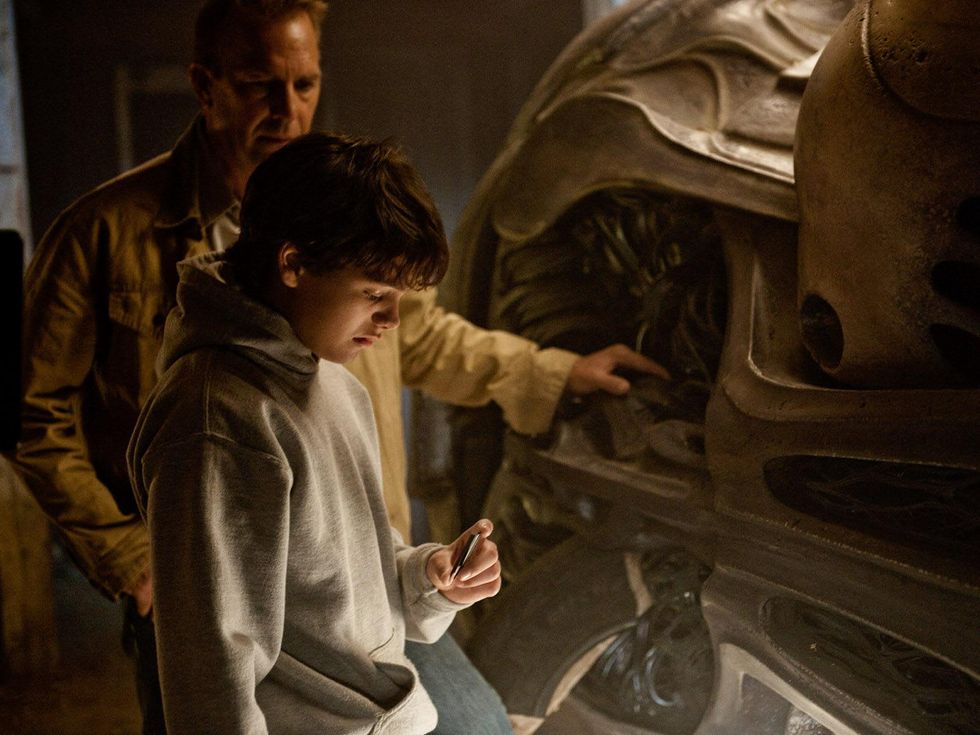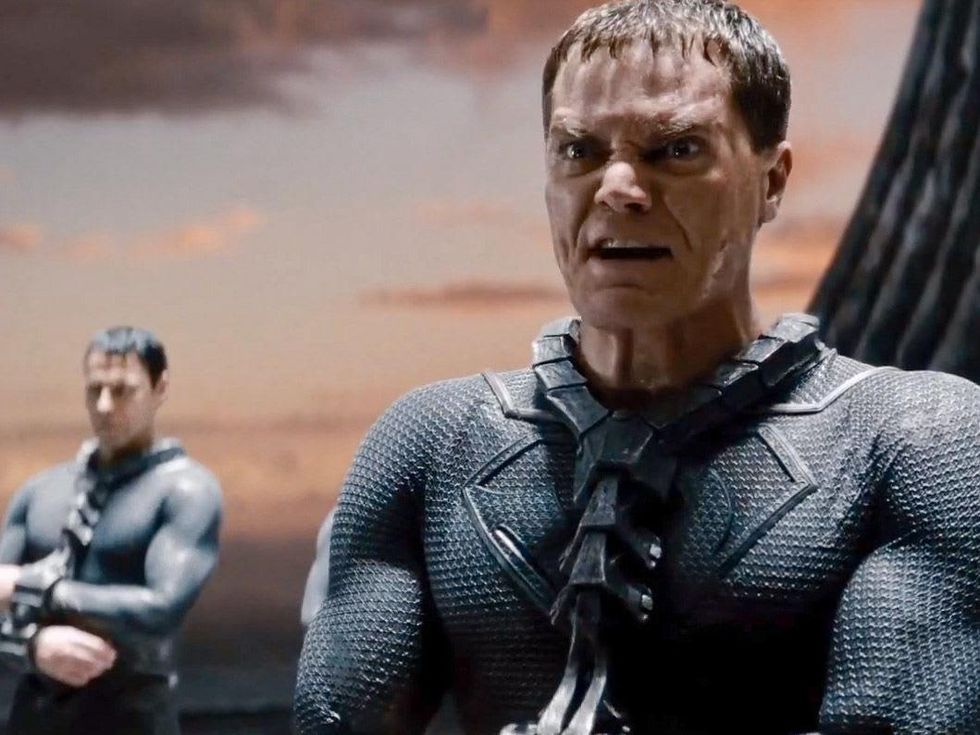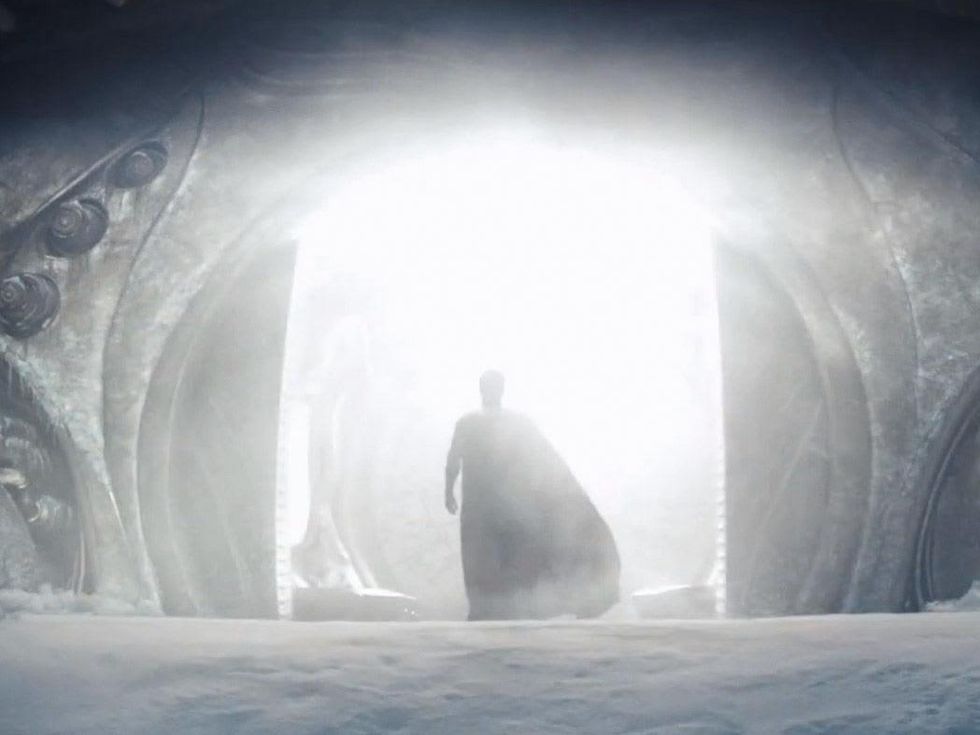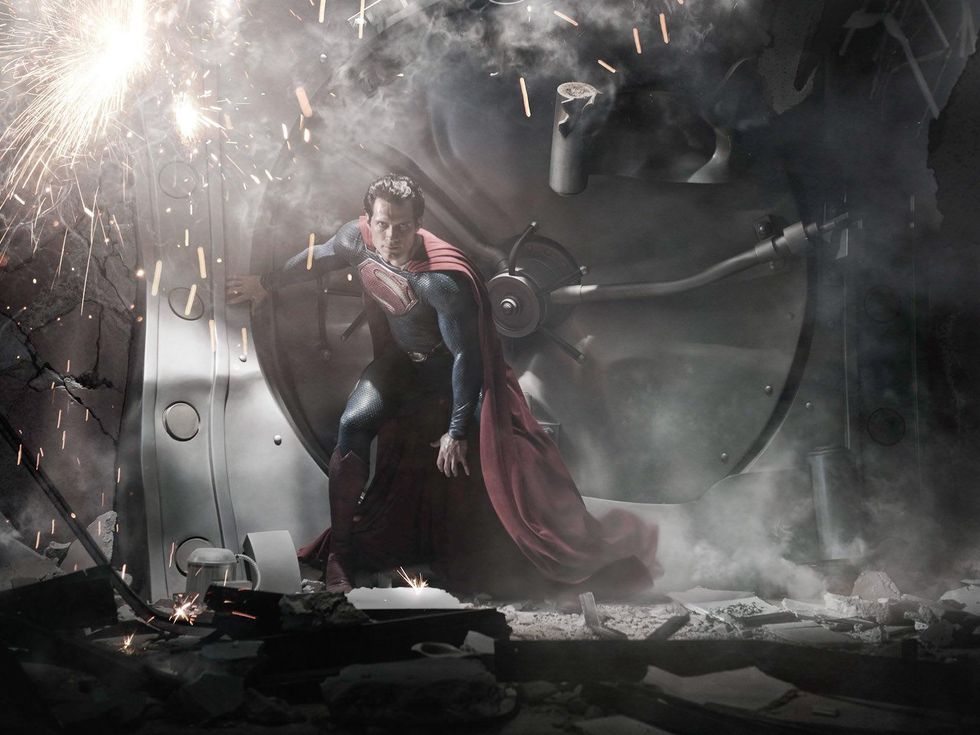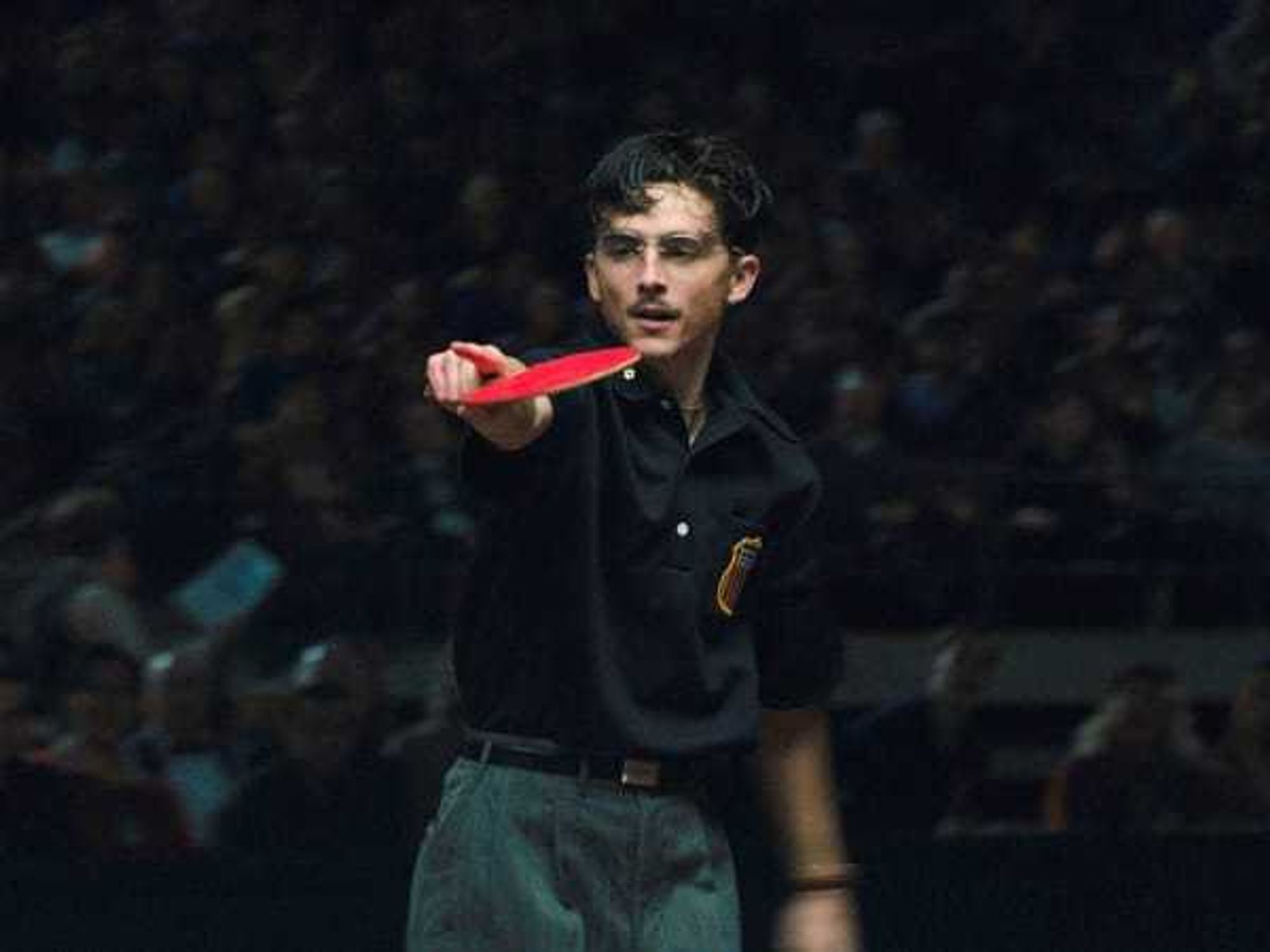Movies Are My Life
Worst Superman ever? Man of Steel is a ponderous, self-serious bore
There’s a scene during the first third of Man of Steel — a wildly uneven attempt to do for Superman what Christopher Nolan’s Batman Begins did for the S-Dude’s DC Comics compatriot — where the strapping young man known variously as Kal-El and Clark Kent finally dons the familiar cape and supersuit, and tries to fly.
It can’t be said that things go well for him right away.
At first, he can’t figure out how to get off the ground. And then, each time it looks like he’s ready to soar steadily, he miscalculates his balance, or does something aerodynamically awkward, and comes crashing back down to earth. Indeed, Clark crashes quite a few times before he gets the hang of things. And even then, you can’t help worrying that he’ll make another spectacular pratfall at any given moment.
You could say something very similar about Man of Steel itself.
Working from a script hashed out by Christopher Nolan — there’s that name again! — and David S. Goyer, the same pair behind the recently concluded Dark Knight trilogy, director Zack Snyder (300, Watchmen) has concocted a mostly humorless and occasionally ponderous version of the Superman mythos that only sporadically takes flight as rousing action-adventure.
Long stretches of the film are weighed down with a leaden seriousness that might seem excessive even in a historical drama about plagues, famine and/or genocide. And to make things even more grandiose, Snyder and the scriptwriters self-consciously accentuate a Superman-as-Messiah metaphor — he descends to earth to live among us, but waits until he’s 33 before he begins his Super-Dupering — that gradually rises from an intriguing undercurrent to a flood-tide distraction.
It's a mostly humorless and occasionally ponderous version of the Superman mythos that only sporadically takes flight as rousing action-adventure.
By the time Snyder springs a scene inside a church where a self-doubting Clark Kent appears in the same frame as a stained-glass image of Jesus Christ, many moviegoers may be tempted to shout at the screen: “Oh, for God’s sake — lighten up!”
(At the risk of sounding even more blasphemous than usual: The exuberantly vulgar This is the End — arguably the most weirdly sincere religious movie since The Rapture — strikes me as much more affecting and intelligent in its allusions to the divine. No, seriously.)
Right from the start, as we’re forced to slog through an interminable prologue set on the doomed planet Krypton, it’s clear that Man of Steel is intended as something more substantial — and much, much more serious — than a mere popcorn flick. And, hey, lofty ambitions aren’t necessarily bad things. But the ultra-expensive mash-up of sci-fi, fantasy and biblical-epic elements on view here is fatally lacking in charm or a sense of wonder.
Too many of the Krypton sets appear to be retrofitted leftovers from David Lynch’s Dune. And when Jor-El (authoritatively played by Russell Crowe), the scientist who knows Krypton’s days are numbered, mounts what appears to be a steroid-enhanced giant bat to complete his appointed rounds, one can’t help wondering if the filmmakers played too many rounds of World of Warcraft (and similar videogames) between script conferences.
But after Jor-El and wife Lara (Ayelet Zurer) blast their infant son Kal-El into space to escape the implosion of Krypton, the pace of Man of Steel picks up considerably. Mind you, this requires some narrative zigzagging on the part of the filmmakers, who leap ahead three decades to find Clark Kent — the alien formerly known as Kal-El — all grown up on Earth, and still struggling to master his super powers (like, for instance, flying). But that’s OK: It’s actually fun to watch Clark rescue workers trapped aboard a flaming oil rig, and modestly amusing to see him plot a cleverly nasty (but nonviolent) comeuppance for a barroom bully.
Better still, there’s a satisfyingly tantalizing air of mystery to the proceedings, as the audience is led to wonder why the supermanly hero (agreeably if unremarkably played as an adult by Henry Cavill) is so determined to maintain a low profile.
And just when you’re ready to wonder aloud, “Hey, when is the dude going to start, you know, flying?” — flashbacks commence to fill in the gaps and explain the motivations.
As an adolescent growing up in Smallville, young Clark (Houston native Dylan Sprayberry) is repeatedly warned by his adoptive father, farmer Jonathan Kent (Kevin Costner), not to prematurely reveal himself as someone with powers far beyond those of mortal men, lest he scare the hell out of people not ready to accept the existence of a superhumanly gifted extraterrestrial in the midst.
In one of the movie’s very best scenes — one that demonstrates just what a subtly expressive actor the often-under-rated Costner really is — Pa Kent is conspicuously short on compliments, and actually seems downright disapproving, after Clark saves fellow students from drowning in a school-bus mishap. When Clark asks his dad point blank whether he should have just let the other kids die, there’s a conspicuously pregnant pause in the dialogue, suggesting that maybe, just maybe, Pa Kent thinks that might have been a more prudent thing to do.
Pa Kent’s worst fears appear to be entirely justified when, years later, The Man Who Would Be Superman is regarded with deep suspicion, and more than a little hostility, by military and government officials as they grasp the full extent of his powers. (Christopher Meloni, late of Law and Order: Special Victims Unit, makes the absolute most of a thinly written role as an Army colonel who initially regards the transplanted Kryptonian as the worst sort of illegal alien.)
The good news: Earthlings quickly come to appreciate Superman (a nickname he is given, not an identity he assumes) after the planet is invaded by equally powerful but far less friendly Kryptonians led by the villainous General Zod (a wild-eyed and raving Michael Shannon). The bad news: This invasion leads to a good half-hour or so of repetitious, CGI-enhanced smackdowns between evenly matched opponents who lay waste to much of Smallville and Metropolis while duking it out like Transformers on a rage-fueled bender.
Snyder, Nolan and Goyer take several liberties with the traditional Superman mythos, introducing gimmicks and plot twists recycled from various other source materials. (Jor-El repeatedly reappears after his demise to offer sage advice as a sort of digitally reconstituted ghost, like a holographic Obi-Wan Kenobi.) But a few of the changes are welcome revisions.
For example, the lovely and talented Amy Adams gets to play Daily Planet reporter Lois Lane as less a distressed damsel than a Pulitzer Prize-winning professional, plucky and brainy and altogether worthy of a Super-Boyfriend.
And while Snyder is rather too fond of giving us immense close-ups of Henry Cavill’s contorted face while he screamingly expresses Superman’s rage, exertion and/or frustration, the whole concept of Superman as an alienated stranger in a strange land who isn’t immediately embraced by the locals — who, in fact, has to earn their trust and acceptance — is a great deal more dramatically arresting than all the mass destruction on display during the film’s final third.
Too often, however, Man of Steel tries too hard, too obviously, to achieve a powerful impact through sheer spectacle, or through striking imagery, without sufficient regard for dramatic pacing, or even narrative logic. Near the end, there’s a flashback to Clark Kent’s halcyon days back on the farm in Smallville: Young Clark runs around the backyard with a sheet tied to his neck as a cape and strikes heroic poses.
At first, you can’t help thinking: “Aw, that’s cute — he’s pretending to be Superman.” Then you can’t help noticing: “Wait a minute — at this point, Superman doesn’t exist yet. What the hell . . .?”
And once again — splat! -— the movie comes crashing back down to earth.
There’s a satisfyingly tantalizing air of mystery to the proceedings, as the audience is led to wonder why the supermanly hero (agreeably if unremarkably played as an adult by Henry Cavill) is so determined to maintain a low profile.
